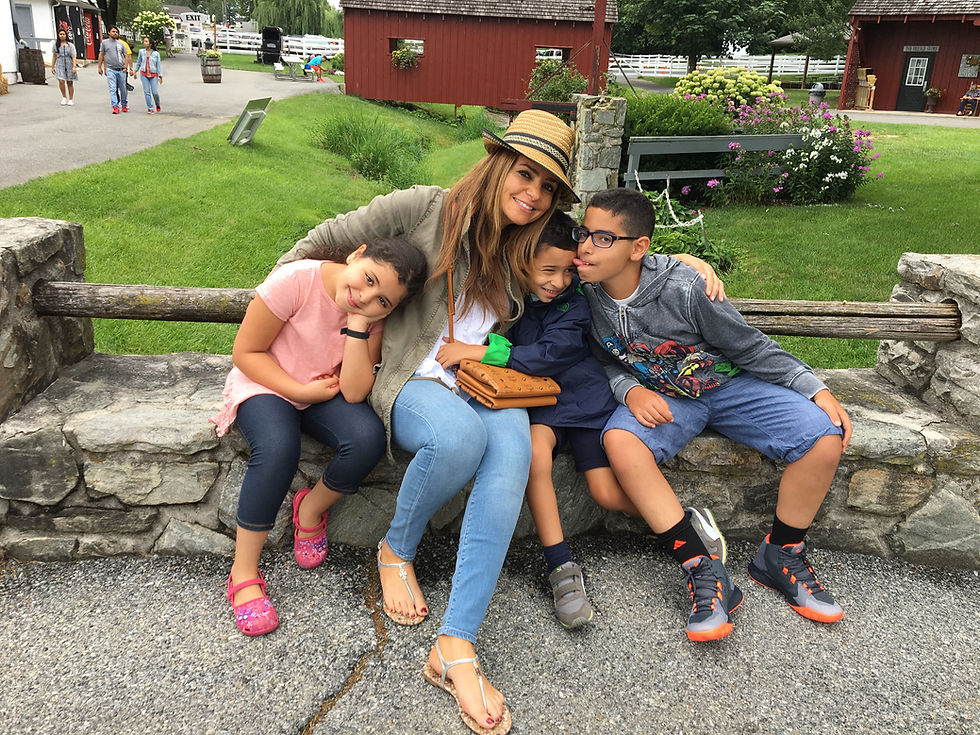My Kid is Rude, Now What?
- Silvia Farag
- Jan 30, 2024
- 3 min read

There is, of course, no one right answer to this question. Anyone who tells you otherwise is probably trying to sell you something. We know from the research that there are a range of constructive ways to handle unsavory kid behavior.
Still, I know that sometimes, it can be useful to hear specific suggestions. So here are mine.
1. Try to stay calm.
Sometimes, parents yell. And that’s fine. Your human. (Just take responsibility and apologize for it later.) But if you can stay calm, that’s typically the best approach. Our anger will only make our kids more upset and make it harder for them to connect and listen to what we have to say.
How can you stay chill, you ask? Remind yourself that your child is struggling. They are likely upset because of something that just happened — perhaps you made a request or set a limit that frustrated them, like “No, I’m not accepting the request for more screentime.”— and their rudeness reflects that feeling.
Remember, too, that kids lack impulse control. We can fantasize about snapping at the rude person in front of us at Starbucks, but usually, we are able to hold our tongues. Kids, on the other hand, will let the vitriol come spewing out because of their underdeveloped prefrontal cortex.
Consider, too, that kids lack autonomy — adults are always telling them what to do — and that being rude or sassy feels like a way to gain a bit of control. I’m not saying you should let them off the hook for their obnoxiousness, but reminding yourself of these things in the moment could keep you from flying off the handle.
2. Reflect their feelings back to them.
Because kids are often rude because they’re upset, the first step to supporting them is to acknowledge their feelings: “Yeah, I don’t really like cleaning up, either” or “I get that melted marshmallows are delicious and you are mad you can’t have that for dinner.”
This approach is helpful because it shows your kid that you get it — that you understand that what they’re going through is hard. Then, they will be less defensive and more able to listen to what you say next.
3. Let them know their rudeness crosses a line.
All feelings are welcome; all behaviors are not.
When your child is rude to you, you have options. After acknowledging their feelings, calmly communicate that their rudeness isn’t okay. This doesn’t mean you need to yell, “THAT IS UNACCEPTABLE!” and send them to their room; there are many more measured ways to do this. It can be as simple as, “I know you’re really upset, but you can’t talk to me that way.”
One idea is to give kids a menu of behavior options: You can either be friendly, you can tell me what’s wrong while being civil, or you can let me know you need space.
Another approach is giving kids the option of a do-over. You could say, “Would you like to try that again?” or “Let’s start this conversation over, shall we?” Often, kids regret their rude words as soon as they’re out — and they welcome a second chance.
A theme you may be noticing here is giving kids options. As I mentioned earlier, kids crave autonomy and are often much more pleasant when they have some. If your kid talks back to you when you ask her to clean her room, you can communicate that she crossed a line and then give her some choices: “You can clean your room now, or you can clean it after dinner.” Or, “You can clean your room or you can fold the laundry. You pick!” The more independence our kids feel they have, the more willing they will be to work with us.
We are all in this together. Parenting is both exhausting and exhilarating. Plant the seeds and most importantly, check in with yourself. If you are not taking care of yourself, that will come out in the home.

Silvia Farag, MSW, LSW, PsyD Candidate runs the Christian Center for Counseling and works with adolescent and adult clients in individual, couples & family therapy. Her personal philosophy is that through human connection, we can foster the encouragement needed to take courageous steps toward creating positive change. She uses evidenced based and strengths-based approaches & believes in the inherent ability of everyone to overcome when they are willing to step into their potential. Therapy illuminates the path so the client can make conscious steps towards emotional health. Her attitude is one of respect and acceptance of each client’s individuality, allowing for the creation of a safe, therapeutic space. Silvia serves with Coptic Women Fellowship, an archdiocese ministry focused on enriching, supporting, and strengthening the lives of women, along with the clergy and several accomplished women of the Coptic Orthodox Archdiocese of North America.




Comments